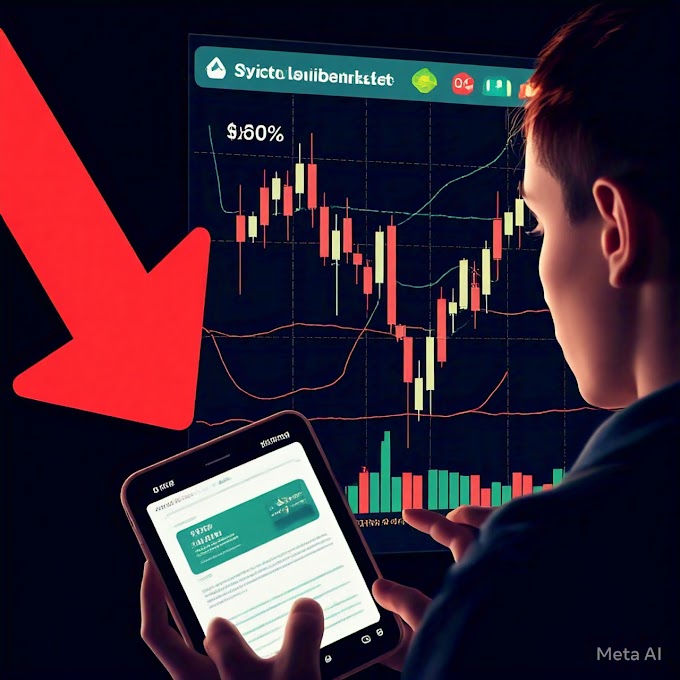Table of Contents
Introduction
The Disintegration of the US Dollar Empire
The Rise of BRICS Nations and De-Dollarization
Inflation and Its Impact on the Middle Class
El Salvador’s Bitcoin Experiment: A Model for the Future
Banking Failures and the Transition to Bitcoin
Challenges from the IMF and Global Financial Institutions
FAQs
Conclusion
1. Introduction
Max Keiser, a prominent financial analyst and Bitcoin advocate, recently shared his insights on the state of the global economy. He predicts an imminent collapse of the US dollar-based financial system and a potential shift to a Bitcoin standard. This article explores his key points, emphasizing the challenges faced by fiat currencies and the opportunities presented by Bitcoin.
2. The Disintegration of the US Dollar Empire
For decades, the US dollar has dominated global trade and finance. However, according to Keiser, this dominance is waning. The US economy’s reliance on printing money to fund its operations has created a fragile financial system. Keiser likens this to a Ponzi scheme, which only functions as long as people trust it. Once trust erodes, the system collapses.
The aggressive use of the dollar as a weapon—such as sanctions and asset freezes—has further alienated nations, pushing them to seek alternatives.
3. The Rise of BRICS Nations and De-Dollarization
Countries like Brazil, Russia, India, China, and South Africa (BRICS) are reducing their reliance on the dollar. They are developing trade agreements in local currencies and exploring new financial systems. Global usage of the dollar is dropping rapidly, signaling the decline of the US’s financial hegemony.
4. Inflation and Its Impact on the Middle Class
Keiser highlights the devastating effects of inflation on the middle class. Excessive money printing has devalued the dollar, leading to skyrocketing prices. While people protest government spending on issues like foreign aid, Keiser believes the real problem lies in the fiat money system itself. He urges citizens to consider Bitcoin as an alternative.
5. El Salvador’s Bitcoin Experiment: A Model for the Future
El Salvador has become a pioneer in Bitcoin adoption, making it legal tender in 2021. Keiser praises the country’s circular Bitcoin economy, where transactions are seamless, uncensored, and borderless. The government has also added Bitcoin to its reserves, strengthening its financial independence. Keiser predicts that El Salvador could become one of the richest nations by embracing Bitcoin.
6. Banking Failures and the Transition to Bitcoin
Keiser warns of a wave of bank failures due to insolvency and dubious accounting practices. He believes this will accelerate the adoption of Bitcoin as people lose faith in traditional financial institutions. With its decentralized nature and limited supply, Bitcoin offers a stable alternative to fiat currencies.
7. Challenges from the IMF and Global Financial Institutions
The International Monetary Fund (IMF) has historically pressured nations to adopt policies that favor the US dollar. However, El Salvador’s President Nayib Bukele has resisted these pressures, working to exit the IMF’s influence. Keiser views this as a significant step toward financial sovereignty and a model for other nations.
8. FAQs
Q1: Why does Keiser compare the US dollar system to a Ponzi scheme?
A: Keiser believes the system relies on constant trust and participation. Once people withdraw from it, the system collapses, similar to a Ponzi scheme.
Q2: How does Bitcoin solve the problems of fiat money?
A: Bitcoin’s decentralized nature prevents governments from manipulating its supply. Transactions are transparent and cannot be censored, making it a reliable alternative.
Q3: Why is El Salvador’s Bitcoin experiment significant?
A: El Salvador demonstrates how a nation can operate outside the fiat system, using Bitcoin for daily transactions and as a reserve asset.
Q4: What is the role of BRICS nations in de-dollarization?
A: BRICS nations are reducing their dependence on the dollar by trading in local currencies and creating financial systems that bypass the US dollar.
Q5: What are the risks of the current banking system?
A: Many banks are insolvent, relying on unsustainable practices. Keiser predicts more failures, which could lead to a financial crisis.
9. Conclusion
Max Keiser paints a bleak picture for the future of fiat currencies but offers hope through Bitcoin. As traditional financial systems falter, Bitcoin’s decentralized and transparent nature provides a promising alternative. El Salvador’s success story serves as an example for other nations to follow. Whether Keiser’s predictions come true or not, one thing is clear: the global financial landscape is shifting, and Bitcoin is at the forefront of this revolution.







.png)
